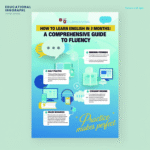Choosing a university is a pivotal decision that can profoundly influence your career choices and long-term professional success. University rankings, often viewed as a benchmark of institutional quality, play a significant role in shaping perceptions of academic prestige, employability, and networking opportunities. We understand the complexities involved in selecting a university that aligns with your career aspirations. This guide explores how university rankings impact your career choices, offering detailed insights into their influence on education quality, employer perceptions, networking opportunities, and long-term professional outcomes. With a focus on actionable information, we aim to equip you with the knowledge to make informed decisions that propel your career forward.
- Understanding University Rankings: What They Mean for You
- The Direct Impact of University Rankings on Career Choices
- 1. Access to Quality Education and Resources
- 2. Employer Perceptions and Hiring Preferences
- 3. Networking Opportunities and Alumni Connections
- 4. Global Recognition and Mobility
- Field-Specific Impacts of University Rankings
- 1. STEM Fields (Science, Technology, Engineering, Math)
- 2. Business and Economics
- 3. Humanities and Social Sciences
- 4. Medicine and Healthcare
- Long-Term Career Outcomes and University Rankings
- 1. Salary Potential and Career Advancement
- 2. Access to Graduate Programs
- 3. Lifelong Learning and Adaptability
- Balancing University Rankings with Personal Goals
- 1. Program Fit and Specialization
- 2. Location and Industry Connections
- 3. Financial Considerations and ROI
- 4. Campus Culture and Personal Fit
- Strategies to Leverage University Rankings for Career Success
- Global Perspectives on University Rankings
- Challenges and Limitations of Relying on University Rankings
- Recommendations and Suggestions
- Frequently Asked Questions (FAQs)
Understanding University Rankings: What They Mean for You
University rankings are systematic evaluations of higher education institutions based on metrics such as academic reputation, research output, faculty quality, student satisfaction, and graduate employability. Prominent ranking systems, including QS World University Rankings, Times Higher Education (THE), and U.S. News & World Report, provide a global perspective on institutional performance. These rankings are not just numbers—they reflect a university’s ability to deliver quality education, foster innovation, and prepare students for competitive job markets.
We recognize that rankings influence how students, employers, and even governments perceive a university’s value. For instance, a top-ranked university often signifies rigorous academic standards, cutting-edge research opportunities, and a robust alumni network. However, rankings are not a one-size-fits-all indicator of quality. They vary by methodology, and their relevance depends on your specific career choices. For example, a university excelling in engineering may rank lower in humanities, affecting how you prioritize institutions based on your field of study.
Key Metrics in University Rankings
To understand how rankings impact your career choices, we must examine the metrics that define them:
- Academic Reputation: Based on peer reviews, this metric reflects a university’s global standing among scholars. A strong reputation often correlates with better faculty and resources, enhancing your learning experience.
- Employer Reputation: Surveys of employers gauge how well a university’s graduates perform in the workplace. High scores here signal strong employability, a critical factor in career planning.
- Faculty-to-Student Ratio: A lower ratio indicates personalized attention, fostering skills like critical thinking and problem-solving, which are vital for career success.
- Research Output: Universities with high research output offer opportunities to engage in cutting-edge projects, which can be a differentiator in fields like science, technology, and medicine.
- Internationalization: Metrics like international student and faculty ratios reflect global exposure, preparing you for multinational careers.
- Graduate Employability: Rankings often include data on alumni success, such as employment rates and average salaries, directly tying to career choices.
By understanding these metrics, we can better assess how rankings align with your professional goals, whether you aim for a career in academia, industry, or entrepreneurship.
The Direct Impact of University Rankings on Career Choices
University rankings directly influence career choices by shaping the opportunities available during and after your studies. We explore the key areas where rankings play a role:
1. Access to Quality Education and Resources
Top-ranked universities often have superior resources, including state-of-the-art facilities, experienced faculty, and comprehensive curricula. For instance, institutions like MIT or Oxford provide access to advanced laboratories, extensive libraries, and interdisciplinary programs that equip students with in-demand skills. These resources enhance your ability to specialize in fields like artificial intelligence, finance, or public policy, directly impacting your career choices.
We note that high-ranking universities often attract renowned professors who are leaders in their fields. Learning from such experts can provide deep insights and mentorship, giving you a competitive edge. For example, a computer science student at Stanford may work with faculty pioneering advancements in machine learning, opening doors to roles at tech giants like Google or innovative startups.
2. Employer Perceptions and Hiring Preferences
Employers often use university rankings as a heuristic to evaluate candidates. A degree from a prestigious institution signals quality education, discipline, and capability. According to a 2023 survey by the Association of American Colleges and Universities, 78% of employers view graduates from top-ranked universities as better prepared for leadership roles. This perception influences hiring decisions, particularly in competitive fields like consulting, investment banking, and law.
We observe that companies like McKinsey, Goldman Sachs, and Microsoft actively recruit from top-tier universities, such as Harvard, Cambridge, and清华大学 (Tsinghua University). A degree from these institutions can fast-track your application, giving you access to high-paying roles and exclusive internships. However, we also acknowledge that employer preferences vary by industry. For instance, creative industries may prioritize portfolios over institutional prestige, while tech firms value technical skills alongside rankings.
3. Networking Opportunities and Alumni Connections
A university’s ranking often correlates with the strength of its alumni network, a critical factor in shaping career choices. High-ranking universities attract ambitious students and influential alumni, creating opportunities for networking that can lead to internships, mentorships, and job offers. For example, Yale’s alumni network includes leaders in politics, business, and entertainment, offering unparalleled connections for students.
We emphasize that networking extends beyond alumni. Top universities host career fairs, industry talks, and recruitment events with global companies. These platforms allow you to connect with recruiters and professionals, directly influencing your career trajectory. For instance, attending a career fair at a top-ranked business school like Wharton could lead to an internship at a Fortune 500 company, shaping your path toward a C-suite role.
4. Global Recognition and Mobility
A degree from a highly ranked university carries global recognition, enhancing your mobility in international job markets. For students aspiring to work abroad, institutions like the University of Tokyo or ETH Zurich signal excellence to employers worldwide. We find that global recognition is particularly valuable in fields like engineering, medicine, and academia, where credentials are scrutinized.
Moreover, top-ranked universities often have partnerships with international institutions, offering exchange programs and dual-degree opportunities. These experiences broaden your perspective and cultural competence, qualities employers value in globalized industries. For instance, a student participating in an exchange program at the London School of Economics may gain insights into international finance, influencing their career choices toward global markets.
Field-Specific Impacts of University Rankings
The influence of university rankings varies by discipline, as different fields prioritize specific attributes. We explore how rankings shape career choices in key areas:
1. STEM Fields (Science, Technology, Engineering, Math)
In STEM, rankings reflect a university’s research capabilities, faculty expertise, and industry connections. Institutions like Caltech and Imperial College London rank highly due to their contributions to innovation and technology. Students in these programs gain access to cutting-edge research, internships with tech giants, and specialized coursework.
For example, a computer science student at a top-ranked university like Carnegie Mellon may work on AI projects funded by industry leaders, leading to roles at companies like Tesla or OpenAI. We also note that STEM employers prioritize skills and certifications, so while rankings open doors, practical experience is equally critical.
2. Business and Economics
Business schools like Harvard, INSEAD, and Stanford dominate rankings due to their rigorous curricula, global networks, and placement records. A degree from these institutions can lead to roles in consulting, finance, or entrepreneurship. We find that MBA graduates from top-ranked schools often earn 20-30% higher starting salaries than those from lower-ranked programs.
Additionally, business schools with high rankings offer access to exclusive case competitions, leadership programs, and alumni mentorships. These opportunities shape career choices by exposing students to real-world challenges and influential networks.
3. Humanities and Social Sciences
In humanities and social sciences, rankings reflect faculty quality, research output, and interdisciplinary opportunities. Universities like Oxford and Columbia excel in these fields, offering programs that foster critical thinking and communication skills. These skills are versatile, leading to careers in journalism, public policy, and education.
We observe that humanities students from top-ranked universities often secure competitive fellowships or graduate school placements, influencing their career paths. For instance, a history major from Princeton may leverage alumni connections to enter publishing or think tanks.
4. Medicine and Healthcare
Medical schools like Johns Hopkins and Karolinska Institutet rank highly due to their research facilities, clinical training, and global impact. A degree from these institutions enhances your credibility in healthcare, influencing career choices toward specialized fields like oncology or global health.
We note that medical employers prioritize accreditation and clinical experience, but rankings signal access to advanced training and research opportunities. For example, a Johns Hopkins medical graduate may secure a residency at a top hospital, shaping their career trajectory.
Long-Term Career Outcomes and University Rankings
The impact of university rankings extends beyond immediate job prospects, influencing long-term career outcomes. We examine how rankings shape your professional journey over time:
1. Salary Potential and Career Advancement
Graduates from top-ranked universities often command higher salaries and faster career advancement. A 2024 study by PayScale found that alumni from Ivy League schools earn median salaries 15-25% higher than those from mid-tier institutions within five years of graduation. This salary differential reflects employer trust in the quality of education and skills acquired.
We also find that high-ranking universities prepare students for leadership roles. For example, CEOs of Fortune 500 companies often hold degrees from top-tier institutions, highlighting the link between rankings and long-term success.
2. Access to Graduate Programs
For students pursuing advanced degrees, university rankings influence admission to competitive graduate programs. Top-ranked undergraduate programs, such as those at the University of Chicago or UCL, provide rigorous preparation for graduate school, increasing your chances of acceptance into prestigious programs.
We note that graduate admissions committees often consider the reputation of your undergraduate institution. A degree from a high-ranking university can also secure scholarships or research assistantships, shaping your academic and professional path.
3. Lifelong Learning and Adaptability
Top-ranked universities emphasize lifelong learning, equipping students with adaptable skills. For instance, programs at institutions like MIT incorporate interdisciplinary coursework, teaching students to navigate complex, evolving industries. This adaptability is crucial in fields like technology, where rapid innovation demands continuous learning.
We emphasize that high-ranking universities foster a growth mindset, encouraging students to pursue certifications, attend workshops, and stay updated on industry trends. These habits influence career choices by preparing you for dynamic, future-proof careers.
Balancing University Rankings with Personal Goals
While university rankings are influential, we stress the importance of aligning your choice with personal and professional goals. Rankings provide a framework, but other factors—such as program fit, location, campus culture, and financial considerations—also shape career choices.
1. Program Fit and Specialization
A university’s overall ranking may not reflect the strength of specific programs. For example, a mid-tier university like Arizona State University may excel in fields like sustainability or education, offering better opportunities than a higher-ranked institution with a weaker program. We recommend researching departmental rankings and faculty expertise to ensure alignment with your career goals.
2. Location and Industry Connections
A university’s location can influence career choices by providing access to industry hubs. For instance, studying at NYU in New York City offers proximity to finance and media industries, while UC Berkeley’s location near Silicon Valley benefits tech students. We advise considering how a university’s location aligns with your target industry.
3. Financial Considerations and ROI
High-ranking universities often come with high tuition costs, impacting your financial planning. We suggest evaluating the return on investment (ROI) by comparing tuition costs with expected earnings in your field. For example, a degree from a public university like the University of Michigan may offer similar career outcomes to an Ivy League school at a lower cost.
4. Campus Culture and Personal Fit
Campus culture, including diversity, extracurricular opportunities, and support services, shapes your university experience. A supportive environment can enhance your academic performance and personal growth, indirectly influencing career choices. We recommend visiting campuses or attending virtual tours to assess fit.
Strategies to Leverage University Rankings for Career Success
To maximize the benefits of university rankings, we propose the following strategies:
- Research Program-Specific Rankings: Focus on rankings for your intended major, as they better reflect career-relevant opportunities.
- Engage in Extracurriculars: Join clubs, internships, and research projects to build skills and networks, amplifying the value of a top-ranked degree.
- Leverage Career Services: Utilize university career centers for resume reviews, mock interviews, and job placements.
- Build a Strong Online Presence: Create a LinkedIn profile showcasing your education and skills, highlighting your affiliation with a prestigious university.
- Pursue Certifications: Complement your degree with industry-recognized certifications to stand out in competitive fields.
Global Perspectives on University Rankings
University rankings have varying impacts across countries and cultures. We explore how rankings influence career choices in different regions:
1. United States
In the U.S., rankings like U.S. News & World Report heavily influence student choices and employer perceptions. Ivy League schools and public universities like UC Berkeley dominate, offering strong career outcomes in diverse fields. We note that U.S. employers often prioritize institutional prestige, particularly in finance, law, and tech.
2. Europe
European rankings, such as those by THE and QS, emphasize research and internationalization. Universities like Oxford, ETH Zurich, and Sorbonne attract global talent, offering pathways to careers in academia, policy, and industry. We find that European employers value skills and experience alongside rankings.
3. Asia
In Asia, rankings drive intense competition for admission to institutions like Tsinghua, NUS, and the University of Tokyo. These universities offer strong industry ties and high employability, shaping career choices in technology, engineering, and finance. We observe that Asian employers often prioritize technical skills but value the prestige of top-ranked degrees.
4. Emerging Markets
In emerging markets like India and Brazil, rankings are gaining importance as education systems globalize. Universities like IIT Bombay and the University of São Paulo provide pathways to local and international careers. We recommend focusing on programs with strong industry partnerships in these regions.
Challenges and Limitations of Relying on University Rankings
While university rankings are valuable, they have limitations that we must consider:
- Methodological Bias: Rankings prioritize certain metrics, like research output, over others, like teaching quality, which may not align with your needs.
- Regional Variations: Global rankings may undervalue regional institutions that excel in specific fields or serve local industries.
- Overemphasis on Prestige: Focusing solely on rankings may lead you to overlook universities that offer better personal or financial fit.
- Dynamic Nature: Rankings change annually, and a university’s position may not reflect its long-term value.
We advise using rankings as one of many tools in your decision-making process, balancing them with personal priorities and career goals.
Recommendations and Suggestions
To make informed career choices influenced by university rankings, we recommend:
- Conduct Thorough Research: Compare rankings across multiple sources (QS, THE, U.S. News) and focus on metrics relevant to your field.
- Prioritize Program Fit: Choose a university with a strong program in your major, even if its overall ranking is lower.
- Network Actively: Leverage alumni networks, career fairs, and internships to build connections that enhance your career prospects.
- Evaluate ROI: Consider tuition costs, scholarships, and expected earnings to ensure financial sustainability.
- Stay Flexible: Be open to emerging universities or programs that may not yet rank highly but offer innovative opportunities.
Frequently Asked Questions (FAQs)
- How do university rankings affect job prospects?
Rankings influence employer perceptions, with top-ranked universities often leading to better job opportunities due to perceived quality and strong alumni networks. - Are university rankings the only factor in career success?
No, skills, experience, networking, and personal fit also play significant roles in shaping career outcomes. - Do employers care about university rankings?
Many employers, especially in competitive fields, use rankings to gauge candidate quality, though skills and experience are equally important. - How can I use university rankings to choose a major?
Focus on program-specific rankings and faculty expertise in your field to ensure alignment with career goals. - Are global university rankings relevant for local careers?
Global rankings are useful but may not reflect the strength of regional universities with strong local industry ties. - Do rankings matter for graduate school applications?
Yes, a degree from a high-ranking university can enhance your chances of admission to competitive graduate programs. - How do I balance rankings with affordability?
Evaluate ROI by comparing tuition costs with expected career earnings and explore scholarships or public universities. - Are top-ranked universities always the best choice?
Not necessarily—program fit, location, and personal goals are critical in choosing the right university. - How do rankings impact international students?
High rankings enhance global recognition, improving employability and mobility in international job markets. - Can a lower-ranked university lead to a successful career?
Yes, skills, internships, and networking can outweigh the importance of rankings in many fields. - Do rankings vary by field of study?
Yes, departmental rankings often differ from overall university rankings, so research your specific major. - How often do university rankings change?
Rankings are updated annually, but significant changes are rare for top-tier institutions. - Are online degrees from ranked universities valued?
Online degrees from high-ranking universities are increasingly respected, especially if accredited and skill-focused. - How do rankings affect networking opportunities?
Top-ranked universities offer robust alumni networks and career events, enhancing professional connections. - Should I prioritize rankings over campus culture?
No, campus culture and personal fit are crucial for academic and personal growth, influencing career success.




















